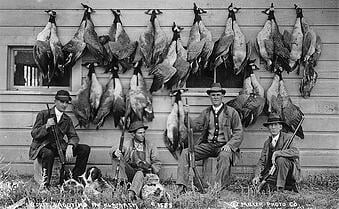How to Hire the Right Salesperson For Your CNC Shop
 Do you need a salesperson to help drive and grow your CNC machining business? It’s a tricky question because there are so many variables that come into play, not the least of which is the fact that salespeople are additional overhead until they start producing.
Do you need a salesperson to help drive and grow your CNC machining business? It’s a tricky question because there are so many variables that come into play, not the least of which is the fact that salespeople are additional overhead until they start producing.
That’s why in many smaller CNC shops there is no one who proactively sells, rather the company relies on repeat customers, referrals and bid requests to generate business. Often the shop owners are the resident salespeople, and they typically start thinking about selling when the pipeline of orders begins to run dry.
Businesses that want to expand into new markets, increase the number of customers to help balance production volumes, or improve their machine utilization should consider dedicating someone to the sales activity by promoting from within or hiring from the outside. Whichever road you take, there are some important points to keep in mind:
- Naturally, this person should have a good grasp of the type of work you do and the ability to effectively present your story to a prospective customer.
- The salesperson must also be a good listener who can gain the confidence of a customer by understanding the customer’s needs and asking smart questions, rather than doing all of the talking.
- The salesperson should realize that the customers are always looking for a solution to their problems: Reducing cost, better delivery times, the ability to machine complex parts and so on. His or her ability to comprehend the customer’s problems and be able to explain how your shop can solve them are the keys to success.
- Sending a salesperson out with a vague or too broad a definition of what to look for in a customer is a common mistake. You need to think hard about what an ideal customer looks like. What kind of work best matches your capabilities? What common characteristics do you see in your best customers? What kind of work do you most like to do? What are the growing markets that are good matches with your capabilities? The more precise a picture you can paint for your salesperson, the more likely they are to hit paydirt sooner rather than later.
- Some people think that all salespeople are alike. In fact, there a many kinds of salespeople and it’s important that you understand the differences so you have the right fit for your business. Here are three of the most common types:
- The Hunter: In its purest form, this type is driven to track down customers and capture them. It’s the thrill of the hunt that gets their juices flowing. Quite often, once this type bags its prey, it no longer has any interest in the trophy. If you need a heavy hitter to tenaciously go after hard-to-land customers, this is the kind of salesperson you want. However, you’ll need someone else to take care of the customer and make sure they get all of the value to which they’re entitled, because the Hunter is usually uninterested in those details.
- The Cultivator: This salesperson is better at building long-term relationships with customers than prospecting or hard selling. The best are capable of winning the prospect’s trust, understanding what is important to them, and working out a value proposition that gets the sale. Once the customer is won, good Cultivators will make sure the customer stays satisfied and will discover additional opportunities with that customer to grow revenues.
- The Door Opener: The best Door Openers are well connected and very persuasive at getting potential customers to listen to a sales pitch. However, some of them lack the skills to properly craft and present a strong value proposition. If you hire a Door Opener, be sure he or she knows precisely the kind of customer you seek, and has the ability to present a compelling case for your products or services. Otherwise they may waste your time talking to people who are not a good match with your services.
Hiring the right salesperson could propel your shop to a new level of volume and profits. The wrong salesperson, however, will simply be a drag on your business, like buying a new machine tool that sits idly in the corner. So take the time to bring the salesperson up to speed on your capabilities, define exactly what you want the salesperson to achieve and what kind of customer you most want to work with. Most important: Make sure you hire the kind of salesperson who best suits your needs.